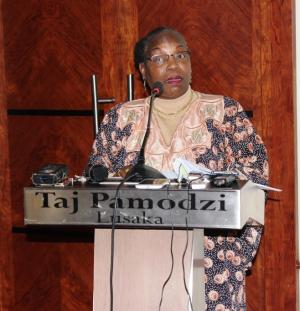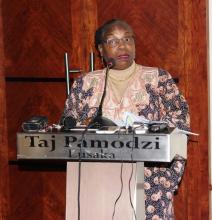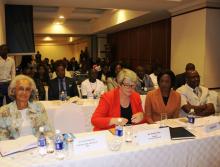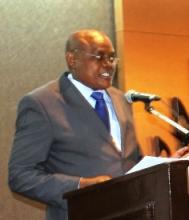The HIV Self-Testing Africa (STAR) project in Zambia shows potential for increasing uptake and coverage of HIV testing
Lusaka - 21 July 2017- Following the completion of phase one of the UNITAID/PSI HIV Self- Testing Africa (STAR) project (2015-2017), Zambia conducted a dissemination meeting to share lessons learnt from implementing the project. This pilot study is being implemented by a consortium led by Population Services International (PSI) in Malawi, Zambia and Zimbabwe in two phases and it will last up to three years from August 2017. The objective of the first phase of the project was to generate vital information about how to distribute self-test products effectively, ethically and efficiently with adequate post-test support services and to answer key questions about the feasibility, acceptability and impact of this intervention. It was also aimed at generating multi-county evidence to inform development of interim WHO guidance and to support national level policy formulation.
Results which were presented at the meeting by the implementing partner for Zambia, the Society for Family Health show that it is feasible to implement HIV self-testing (HIVST) in the public sector. A total of 166,000 testing kits were delivered through 16 public sector health facilities and their surrounding communities in Choma, Kapiri Mposhi, Lusaka and Ndola districts. The project used the health facility, community based distribution, Voluntary Medical Male Circumcision and workplace models to reach different target populations. However, additional diverse models were recommended in order to reach more target populations particularly males and young people. The major challenges were poor linkage to care and post testing counselling, space for facility based distribution and myths and misconceptions among the general public. The results point to the need for establishment of the operational framework for HIVST in order to move from the pilot to full scale implementation.
Speaking on behalf of the minister of health during the opening ceremony, the director for public health at the Ministry of Health, Dr. Kennedy Malama said that despite the remarkable increase in the knowledge of where to get an HIV test, only 67.3 percent of Zambian people living with HIV knew their HIV status. The minister said that achieving the UNAIDS 90:90:90 fast track targets required policy direction for scaling up innovations to accelerate access to HIV testing services. He said that Zambia had achieved some significant milestones towards successful implementation of HIV self-testing particularly the formation of the HIVST steering committee, adaptation of the 2016 WHO HIV self-testing guidelines and inclusion in the Zambia national HIV testing services guidelines including prioritization of procurement of HIV self-testing kits in the 2018-2020 global fund funding request. He called for continued collaboration with all stakeholders and mobilization of resources in order to ensure successful country-wide implementation.
At the same occasion, the director for the UNITAID/PSI/STAR project, Dr. Karin Hatzold said that globally, there was a gap for HIV testing because only 62% of the people living with HIV knew their status. She said that adolescent girls, sex workers and men were among the populations that needed to be targeted in efforts to improve HIV testing. Dr. Hatzold said that the evaluation project had demonstrated in all the three countries that HIV testing had a positive impact on uptake and coverage including linkage to post- test services. She also reported that the project had resulted in improvements in commitments for financing from UNITAID, Global Fund, PEPFAR and other donors.
The acting WHO Representative, Dr. Custodia Mandlhate stated that the HIV self-testing project was important in moving towards the UN’s targets of ensuring that by 2020, 90% of all people living with HIV know their HIV status, 90% of all people diagnosed with HIV receive sustained antiretroviral therapy and 90% of all people receiving antiretroviral therapy have durable suppression. Dr Mandlhate said that in the African Region, the gap for HIV testing was 28% while that for Anti - Retroviral Treatment was 26% and 45% for viral suppression. She said that the National Health Strategic Plan 2017-2021 embraced the UNAIDS fast track targets and that it was important to be accountable in addressing the testing, treatment and viral suppression gaps using innovative strategies.
Phase two of the UNITAID/PSI/STAR project will evaluate how optimal HIVST distribution models piloted in phase one can achieve public health goals and further catalyse the HIVST market by establishing high levels of consumer demand and strong country-level supply chains.
For More information contact:
Nora Mweemba, Health Information and Promotion Officer, WHO
Tel: 255322 /255336, 255398, Cell: 097873976.
mweemban [at] who.int (mweemban[at]who[dot]int)
Dr. Lastone Chitembo, NPO, HIV/TB, WHO
Tel: 255322 /255336, 255398,
chitembol [at] who.int (chitembol[at]who[dot]int)






